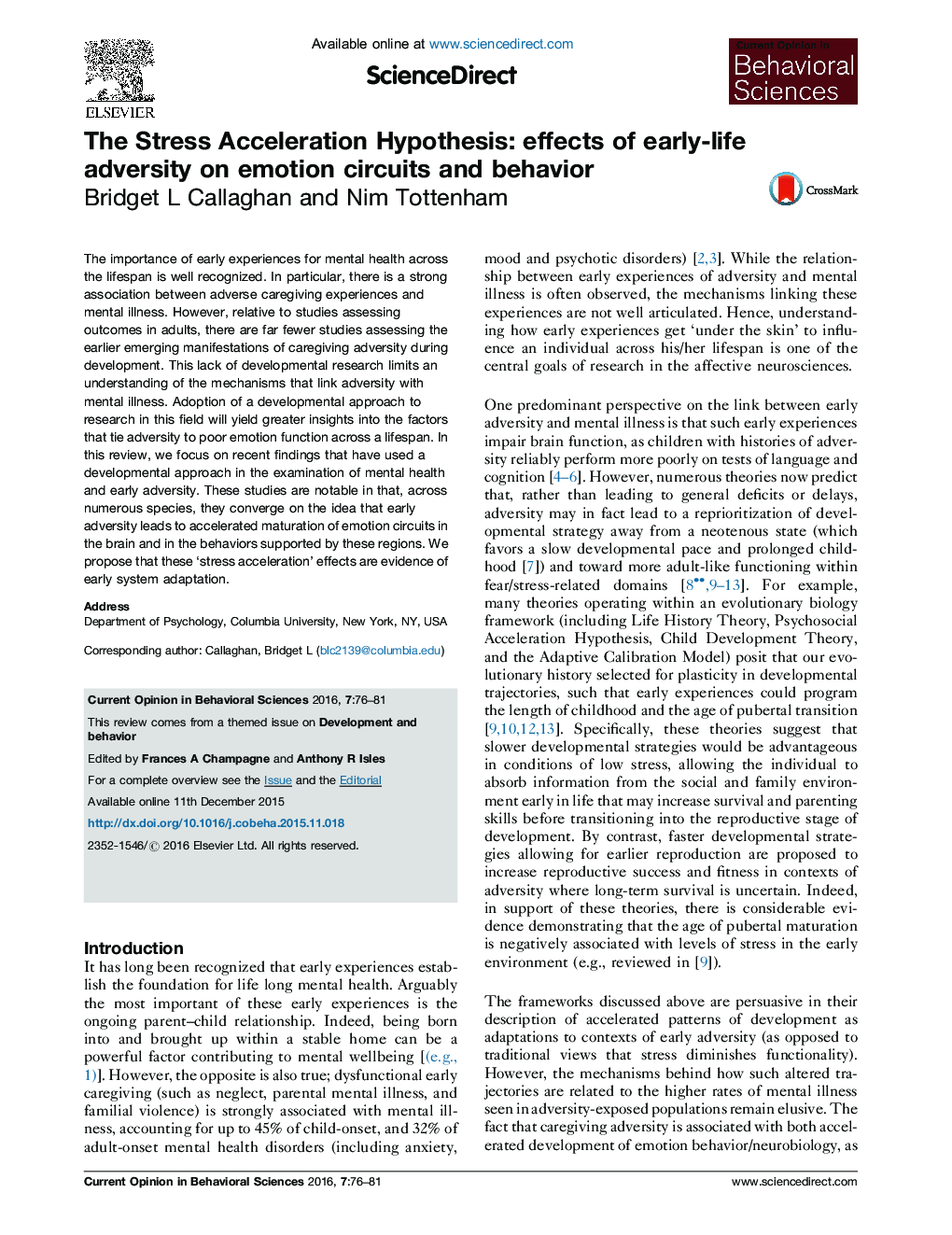| Article ID | Journal | Published Year | Pages | File Type |
|---|---|---|---|---|
| 6260652 | Current Opinion in Behavioral Sciences | 2016 | 6 Pages |
â¢Early caregiving adversity is associated with poor mental health outcomes.â¢Across species, adversity accelerates the developmental trajectory of emotion circuits.â¢Accelerated development may reflect an adaptive strategy for low parental care contexts.â¢Changes to the pace of development may change the nature of mature phenotypes.â¢A model is proposed that provides a neurobiological mechanism by which early experiences lead to changes in emotional phenotypes.
The importance of early experiences for mental health across the lifespan is well recognized. In particular, there is a strong association between adverse caregiving experiences and mental illness. However, relative to studies assessing outcomes in adults, there are far fewer studies assessing the earlier emerging manifestations of caregiving adversity during development. This lack of developmental research limits an understanding of the mechanisms that link adversity with mental illness. Adoption of a developmental approach to research in this field will yield greater insights into the factors that tie adversity to poor emotion function across a lifespan. In this review, we focus on recent findings that have used a developmental approach in the examination of mental health and early adversity. These studies are notable in that, across numerous species, they converge on the idea that early adversity leads to accelerated maturation of emotion circuits in the brain and in the behaviors supported by these regions. We propose that these 'stress acceleration' effects are evidence of early system adaptation.
